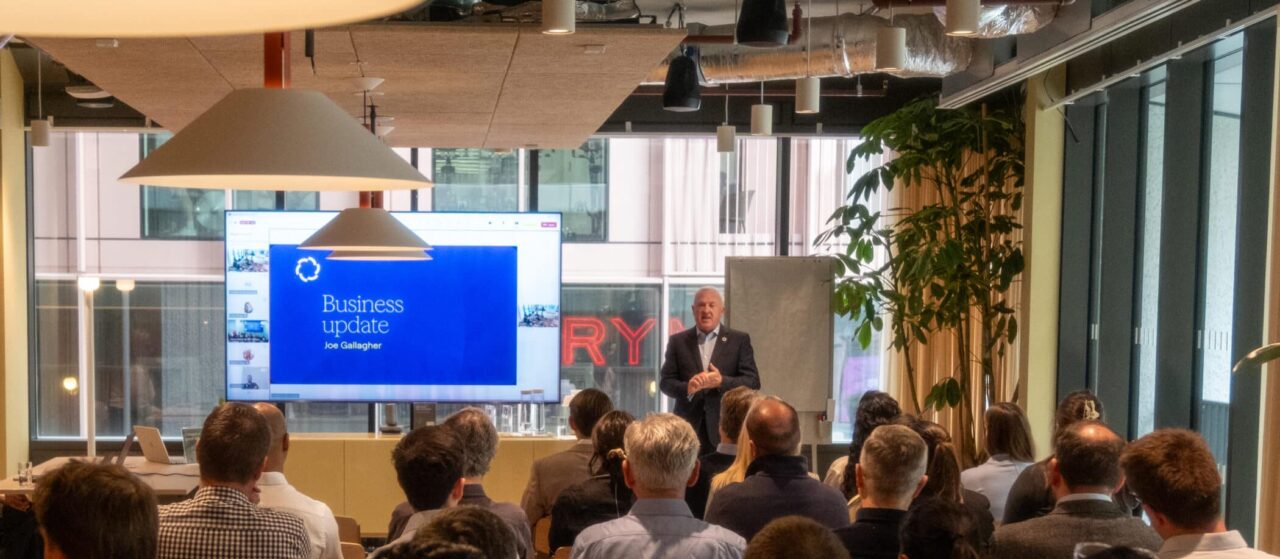In the familiar march of technology, the current AI revolution stands out as being different.
Indeed, there has been a discernible acceleration in AI capabilities since OpenAI unveiled ChatGPT in November 2022. This growth persists even amidst fluctuating economic conditions and global disruptions, and there’s a rising belief that these advanced AI applications might just hold the key to boosting productivity and enabling long-term growth across various sectors, with a standout impact on telecommunications.
Liberty Global’s companies collectively provide over 85 million fixed and mobile connections across six European markets whilst simultaneously rolling out the next generation of products and services. Through AI, we’re developing a more intuitive and intelligent approach to network operations and enhanced customer experiences. For example, Sunrise, one of our subsidiaries, is using AI to conduct real-time traffic forecasting, which helps to reduce the energy consumption in existing mobile networks by around 10%. In the back office, AI is helping us to create cost efficiency by streamlining routine tasks. And on the frontline, we’re seeing improved customer service made possible with more personalised interactions powered by conversational AI.
With the rise of generative AI, we expect this transformative technology to continue to support our 33,000 employees in significant ways. But the transformation within the sector isn’t the end of the story.
Telcos crucial to harnessing the vast benefits of AI
Last month, Liberty Global and EY published a new report, Wired for AI, which highlights the pivotal role that the telecoms industry plays in harnessing the far-reaching benefits of AI for our economy and society.
Through the high-speed, low latency connections offered by 5G technology and innovative leaps in edge computing and ‘network-as-a-service’, telecoms companies are now instrumental in enabling safe and effective use of AI by governments, enterprises and individual consumers alike.
And the potential benefits are immense: For example, Goldman Sachs estimates that generative AI could contribute $7 trillion to the global economy and increase productivity by 15 percentage points. This new report by EY and Liberty Global finds that, in the US, UK, EU and Switzerland, 50% of jobs could be complemented by AI, with efficiency gains ranging from 18% to 30%. Applying these individual gains to the entire workforce could create additional ‘productive capacity’ equivalent to more than 120 million workers or around $7 trillion in value of annual wages.
Crucially, the report estimates that 70% of the jobs where AI could augment people are also highly dependent on telecommunications networks, which means that our industry enables a substantial proportion of the benefits of AI.
Shaping secure, fair and transparent AI
Navigating the highly volatile and uncertain AI landscape, however, calls for vigilance. As we increasingly rely on these technologies, the telecommunications industry bears a broader responsibility to ensure the secure, fair, and transparent use of AI.
Besides addressing practical challenges around infrastructure resilience and meeting demands for adaptable networks, telecoms companies must also stay on top of evolving AI regulations, such as the EU’s Artificial Intelligence Act.
Our report considers the measures that telecommunications companies need to implement to unlock the full breadth of AI advantages, whilst mitigating associated risks. An example of AI’s capacity to usher in change, this report is, itself, shaped by generative models that were used both for data analysis and drafting. It illustrates the transformative power that the telecommunications sector now needs to harness, both within the industry and for the benefit of all other sectors.
This report comes at a critical juncture for the telecommunications industry at it continues to balance AI’s significant impacts on operations and services. At the same time, the sector has a unique opportunity to enable and accelerate the advantages of AI globally.
We hope that this report will resonate with a wide audience within the industry and outside, including business leaders and policymakers. Additionally, we hope that it serves not only to inspire fresh thinking and stimulate dialogue around responsible AI, but also lays the groundwork for effective policy and regulatory development in the sector. Your feedback is most welcome.
Read the full report.









